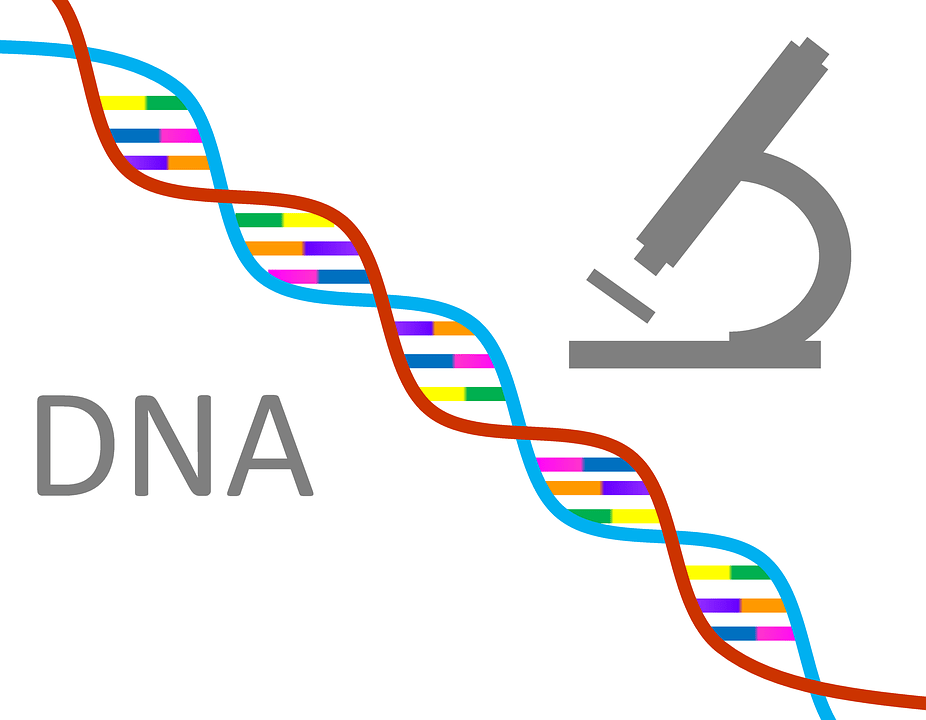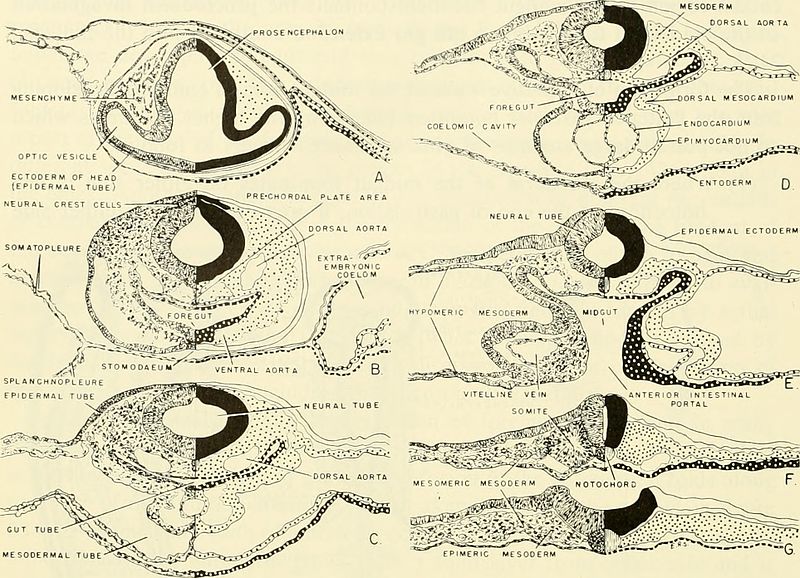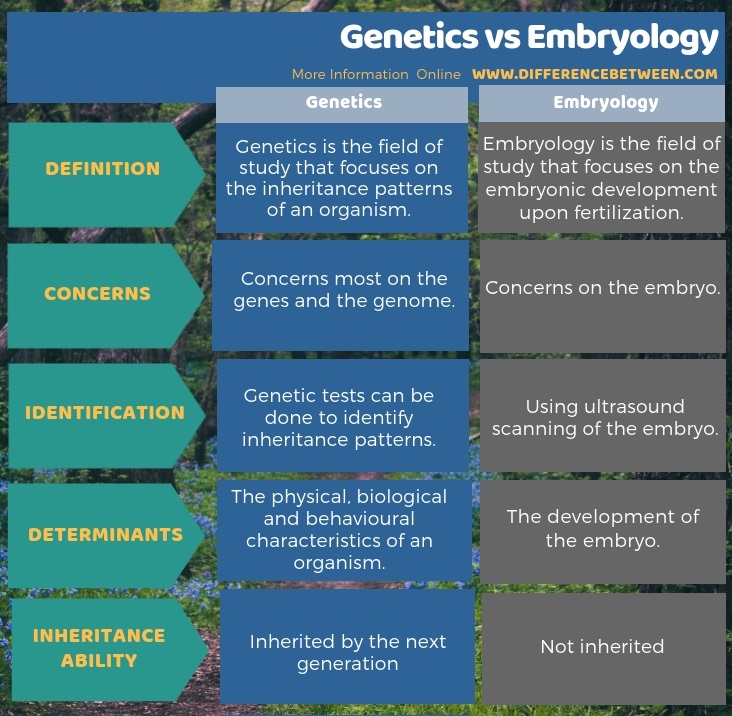Difference Between Genetics and Embryology
Table of Contents
The key difference between genetics and embryology is that genetics is the field of study that focuses on the inheritance patterns of organisms while embryology is the field of study that focuses on the development of a fertilized embryo.
Both genetics and embryology are branches of biology. Embryology is dependent on the genetics of a particular organism. Therefore, both are important in developmental biology of an organism. Hence, the complete representation of an organism is based on the combination of both genetics and embryology.
CONTENTS
1. Overview and Key Difference
2. What is Genetics
3. What is Embryology
4. Similarities Between Genetics and Embryology
5. Side by Side Comparison – Genetics vs Embryology in Tabular Form
6. Summary
What is Genetics?
Genetics is the study of the inheritance patterns of an organism. Genetics has two main components; classical genetics and modern genetics. Gregor Mendel was the first scientist who brought forward the concept of genetics. Hence, he is the father of genetics. The Mendelian genetic patterns are still in use when describing some genetic inheritance patterns. But, modern genetics uses concepts such as incomplete dominance and other non-mendelian patterns to describe the inheritance.
Genes are the fundamental component of genetics. Structurally genes are particular regions of the chromosomes that contain genetic information hidden in specific nucleotide sequences to produce proteins. During the sexual reproduction, parental genes transfer into offspring. Thus, genetics basically focuses on genes and then determines the physiological, behavioural and morphological patterns of living organisms.

Figure 01: Genetics
The genome of an organism represents the total genes of an organism. Hence, studying the whole genome is very important in genetics. At present, genetics uses modern technologies to isolate and identify various genes responsible for inheritance patterns.
What is Embryology?
Embryology is a field of study that studies the development of the fertilized ovum or the embryo. Embryology studies various development stages of an embryo until it is released by the delivery process. Accordingly, the study of embryology starts with the origin of the embryonic cells, its growth and its development. Formation of the embryo takes place after fertilization (union of male and female gametes during the sexual reproduction).

Figure 02: Embryology
After the first eight weeks from fertilization, the embryo converts into the fetus. There are different features taking place during the embryonic development. Some of the features are the differentiation of cells to tissues and organs, development of organs and growth. These features of the embryo can be observed by ultrasound scanning.
What are the Similarities Between Genetics and Embryology?
- Genetics and Embryology are branches of biology and developmental biology.
- Both represent characteristics of living organisms.
- Moreover, both fields of study are widely popular due to the many avenues of research associated.
- Also, both fields of studies use new techniques.
What is the Difference Between Genetics and Embryology?
Genetics is the study of genes, variation and heredity of organisms while embryology is the study of embryos. Hence, this is the key difference between genetics and embryology. The main focus of the genetics is the inheritance patterns of genes while the main focus of the embryology is the development stages of the embryo. Genetics explains the genes inheritance; in other words, trait inheritance from parents to offspring. Embryology explains the development of gametes, fertilization and development of embryos and fetuses. Hence, this is another difference between genetics and embryology.

Summary – Genetics vs Embryology
Genetics and embryology are two main fields of biology. Genetics focuses on inheritance patterns of organisms. In contrast, embryology focuses on the development of the embryo after fertilization. Various organisms have various embryonic development periods. Genetics also plays an important role in embryonic development of an organism. Therefore, it is important to study the genetic patterns in embryology as well. Moreover, the embryonic development can be observed from ultrasound scanning which is done periodically. On the other hand, genetic tests help to study the genetics of an organism. Thus, this summarizes the difference between genetics and embryology.
Reference:
1. WADDINGTON, C. H. “Embryology and Genetics.” Nature News, Nature Publishing Group, 23 Feb. 1935. Available here
2.“Embryology.” Wikipedia, Wikimedia Foundation, 13 Dec. 2018. Available here
Image Courtesy:
1.”1020670″ by Tumisu (CC0) via pixabay
2.”Comparative embryology of the vertebrates; with 2057 drawings and photos. grouped as 380 illus (1953) (20049543203)”By Internet Archive Book Images (Public Domain) via Commons Wikimedia
ncG1vNJzZmivp6x7pbXFn5yrnZ6YsqOx07CcnqZemLyue8OinZ%2Bdopq7pLGMm5ytr5Wau26zxKecraGTqHqiusNmnKaaoq68rbvGsmY%3D